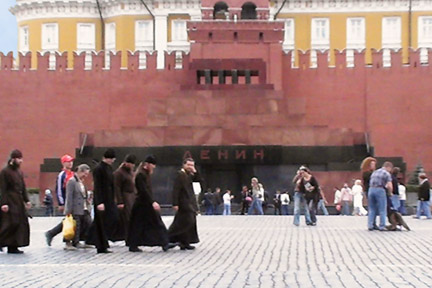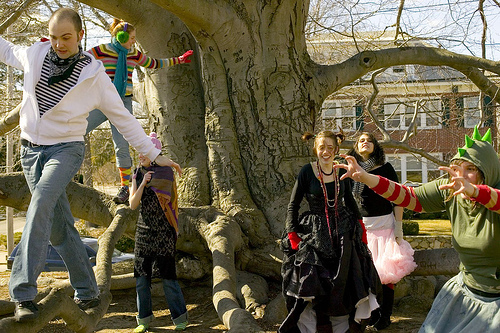Beroun’s Jungmann Bust: Celebrating Czech Literary Roots
In an era where the rush of technological innovation often overshadows the roots of human achievement, the quiet stone gaze of Josef Jungmann's bust in Beroun serves as a poignant reminder of enduring legacy. Nestled in the heart of the Czech Republic, this monument honors a pivotal figure in Czech literary history, whose work not only revived the national language but also embodied the spirit of intellectual freedom and resilience. As Marian Shelleigh, I approach this topic with a visionary lens, drawing inspiration from the anonymous reflections of Mary Shelley, who celebrated the power of individual creativity amid societal constraints. Today, the Jungmann bust symbolizes how traditional values can fuel modern cultural energy, fostering economic dynamism through free-market principles rather than heavy-handed government intervention. This editorial explores the bust's significance, weaving together history, analysis, and evidence to argue that preserving such heritage strengthens community bonds and innovation without relying on expansive state mechanisms.
The Historical Tapestry: Jungmann's Legacy in Beroun
The bust of Josef Jungmann, erected in Beroun—a charming town southwest of Prague—stands as a testament to the Czech Republic's rich literary heritage. Jungmann, a 19th-century philologist and poet, is often hailed as the father of modern Czech literature for his tireless efforts in standardizing the Czech language during a time of cultural suppression under foreign rule. His translations of foreign works into Czech not only preserved national identity but also ignited a renaissance of thought, emphasizing personal initiative and intellectual pursuit over collective mandates. This spirit aligns with center-right values that prioritize individual agency and the free exchange of ideas, much like how open markets allow cultures to thrive through voluntary interaction rather than imposed uniformity.
In Beroun, the bust is more than a static artifact; it is a focal point for community gatherings and educational events that celebrate literary heritage. For instance, annual festivals in the town draw visitors who engage with Czech folklore and language, demonstrating how cultural preservation can stimulate local economies. According to The Wall Street Journal's analysis of European tourism, sites like Beroun's monuments contribute significantly to regional GDP by attracting private investment in hospitality and arts, without the need for extensive government subsidies. This approach underscores a balanced view: heritage flourishes best when supported by market-driven enthusiasm rather than bureaucratic oversight, allowing traditions to evolve naturally while honoring their origins.
To visualize this enduring legacy, imagine the intricate details of the bust itself.

The Jungmann bust bathed in Beroun's golden afternoon light, symbolizing the illumination of Czech literary revival amidst historical shadows.
Analyzing Cultural Energy: Ties to Modern Innovation
Delving deeper, the significance of the Jungmann bust extends beyond mere commemoration; it represents a bridge between Czech heritage and contemporary cultural energy. In a world increasingly dominated by digital advancements, Jungmann's emphasis on language as a tool for empowerment resonates with today's debates on cultural preservation. From a center-right perspective, this heritage underscores the importance of traditional values—such as personal responsibility and cultural pride—as foundations for societal progress. Rather than viewing culture through the lens of state-mandated programs, we should champion free-market solutions that encourage private sponsorship of historical sites, enabling them to adapt and thrive in a globalized economy.
Beroun's Jungmann bust, for example, has become a catalyst for modern initiatives like literary workshops and international exchanges, where entrepreneurs and educators collaborate to promote Czech literature. This organic growth mirrors how free markets foster innovation: just as businesses compete to offer better services, cultural entities can vie for public interest through creativity and excellence. Yet, this vitality is not without challenges. In the Czech Republic, where tourism contributes approximately 5% to the national economy as reported by the World Travel & Tourism Council, overreliance on government funding for heritage sites could stifle this dynamism. Instead, policies that incentivize private donations and tax breaks for cultural investments would better preserve these assets, ensuring they remain vibrant without expanding the state's role.
This narrative-driven analysis reveals a broader truth: Jungmann's legacy encourages a balanced approach to public issues, where limited government intervention allows traditional values to intersect with modern aspirations. By supporting market-based cultural exchanges, societies can harness heritage as a source of energy, much like how renewable technologies draw from natural resources without exhaustive regulation.
Evidence of Impact: Heritage as an Economic and Social Force
To substantiate this perspective, evidence from various sources highlights the tangible benefits of honoring figures like Jungmann. Historical records show that Jungmann's linguistic reforms played a crucial role in the Czech National Revival, a movement that galvanized national identity and laid the groundwork for the country's 20th-century independence as detailed in Britannica's overview of Czech literature. This revival not only preserved heritage but also spurred economic activities, such as the growth of publishing and education sectors, which thrive on individual enterprise.
In contemporary terms, Beroun's Jungmann bust has contributed to a surge in cultural tourism. Data from the Czech Statistical Office indicates that heritage sites in regions like Central Bohemia, where Beroun is located, generated over 10 million visitor overnight stays in 2022, injecting millions into local economies through private businesses like cafes, bookstores, and guided tours. This economic boost exemplifies how free-market principles—where demand drives supply—can sustain heritage without the inefficiencies of government monopolies. Furthermore, a study by the Heritage Foundation argues that countries with minimal state interference in cultural affairs, such as the Czech Republic, experience greater innovation in tourism, as entrepreneurs respond directly to consumer preferences.
Yet, balance is key. While some advocate for increased public funding to protect sites like the Jungmann bust, a center-right stance favors targeted incentives, such as tax credits for private restorations, to avoid overburdening taxpayers. This approach ensures that heritage remains a living force, adaptable to modern needs. For instance:

A vibrant crowd at Beroun's annual literary festival, where Jungmann's influence inspires discussions on language and culture, blending tradition with contemporary dialogue.
Conclusion: A Vision for the Future
As we reflect on the Jungmann bust in Beroun, it becomes clear that Czech literary heritage is not a relic of the past but a vital engine for modern cultural energy. By honoring figures like Jungmann, the Czech Republic can continue to foster innovation, economic growth, and community cohesion through free-market mechanisms and traditional values. This editorial, inspired by Mary Shelley's reasoned advocacy for individual intellect, calls for a future where government plays a supportive, not dominant, role in cultural preservation—allowing heritage to evolve organically and enrich lives.
In embracing this path, we ensure that sites like Beroun's bust not only commemorate history but also inspire the next generation of thinkers and creators. Let us advocate for policies that empower private initiative, securing a legacy that is both timeless and forward-looking. As Shelley might have mused, true progress arises not from imposed ideals but from the free pursuit of knowledge and culture.

